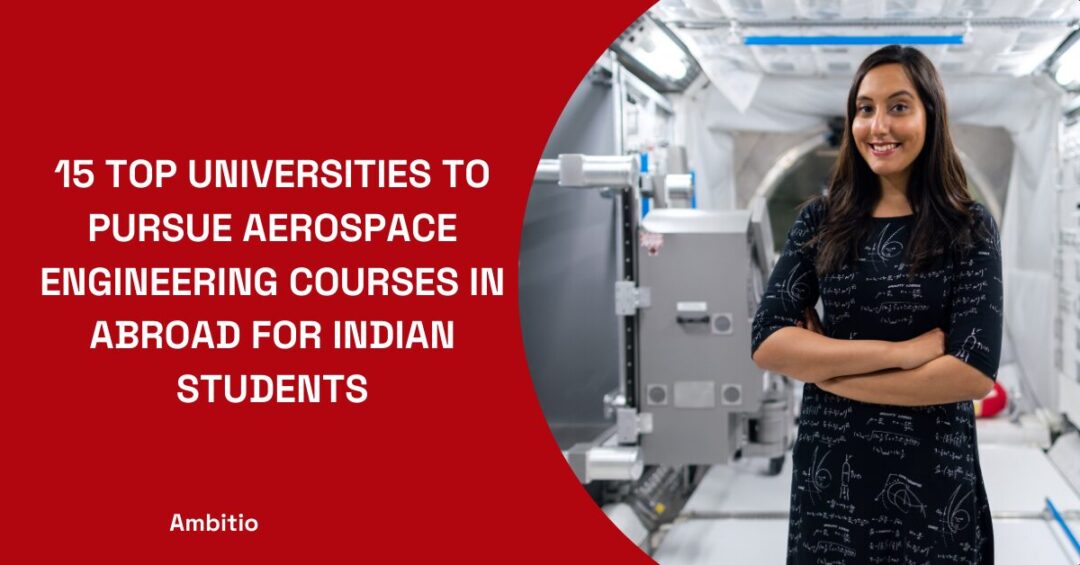24 April 2025
8 minutes read
How To Write A Statement Of Purpose For Masters In Information Technology + 2 Sample SOP For Indian Students

Key Takeaways
- A strong statement of purpose for masters in information technology connects your past experiences, skills, and career goals with the program you’re applying for.
- Top universities like MIT and Stanford offer outstanding opportunities, but the right program for you depends on aligning your goals with what they offer.
- Stick to the ideal word limit and structure your SOP clearly to make sure it stands out in a competitive field.
You’ve got the academic background, work experience, and career goals to back up your application, but writing your SOP for an MS degree in Information Technology can feel like a puzzle. With a strict word limit and the pressure to impress the admission committee, you’re left wondering how to truly stand out. Using SOP samples can help, but remember, it’s about weaving your short-term and long-term goals into a genuine story that showcases both your academic and professional journey.
What Is The Structure To Write An SOP For MS In Information Technology?
This is your moment to show that your degree in Information Technology, your technical skills, and your experience in the field make you more than just another applicant. It’s about telling them why you’re passionate about the field of information technology and how their program will help you shape your future in this fast-paced, ever-evolving industry.

Here’s how a good structure looks like:
1. Introduction: Define Your Motivation Clearly
When you write an SOP for information systems, start by defining why you’re pursuing a master’s in information technology. Is it to advance your technical skills or dive deeper into information systems? Craft a compelling SOP by connecting your degree in Information Technology with your purpose for masters in information, showing how the program aligns with your goals.
2. Highlight Your Academic Background and Work Experience
Your academic or professional experience plays a crucial role in SOP writing. Be specific about your degree in information technology, technical skills, and work experience. Discuss how these have prepared you for the challenges of the MS in Information Technology program and demonstrate your readiness for advanced study.
3. Explain Why You Chose the University and Program
A winning SOP for MS should clearly state why you’ve chosen that specific program and university. Mention the unique aspects of the department of information technology and how they fit with your goals. Highlighting the university name and the program’s features shows you’ve done your research and adds a professional touch to your SOP.
4. Align Your Career Goals with the Program
Align your short-term and long-term career goals with what the MS in Information Technology program offers. Whether you’re aiming to become a chief technology officer or build a career in data science, writing an impressive SOP means clearly demonstrating how the program will help you develop the skills and knowledge needed in the field.
5. Stick to the Ideal Word Limit and Structure
SOP writing requires clarity and conciseness, so make sure your SOP stays within the ideal word limit (500–1,000 words). Avoid unnecessary details and focus on presenting your academic background, experience, and career goals in a structured, easy-to-read format. A free sample can help, but make sure your SOP stands out with a personalized, professional touch.
10 Best Universities In The World To Study Masters In Information Technology
The world of information technology doesn’t wait for anyone—and neither should you. In an industry that evolves faster than any other, the key to staying ahead is choosing the right university for your MS in Information Technology. But here’s the truth: Not all universities are created equal. The right program can propel you into a career that’s not only high-paying but also future-proof.

So, if you want to secure your place in the competitive world of IT, here’s a list of the 10 best universities in the US and UK, where both the education and the opportunities are top-tier.
| University Name | Average Tuition Fees (Per Year) | Average Salary After Graduation |
|---|---|---|
| Massachusetts Institute of Technology (MIT) | $53,790 | $112,000 |
| Stanford University | $54,315 | $105,000 |
| University of California, Berkeley | $46,000 | $108,000 |
| Carnegie Mellon University | $48,000 | $102,000 |
| University of Illinois Urbana-Champaign | $35,000 | $95,000 |
| Harvard University | $50,000 | $108,000 |
| University of Washington | $36,000 | $100,000 |
| University of Southern California | $60,000 | $105,000 |
| University of Texas at Austin | $40,000 | $98,000 |
| Georgia Institute of Technology | $30,000 | $90,000 |
5 Expert Tips To Write An Effective SOP For Information Technology
It’s not about simply throwing words on a page and hoping for the best. If you think that’s all it takes to get into your dream program, think again. Crafting an effective SOP for a master’s in information technology requires strategy. No one wants to read another generic statement of purpose that could apply to any program at any university. You’ve got to make your SOP stand out.
So, let’s get down to it—here are five expert tips to write an impressive SOP for MS that will have the admission committee nodding their heads.
1. Start with a Hook, End with a Purpose
When it comes to writing an SOP, don’t bore the reader from the start. Avoid generic statements like “I’ve always loved technology.” Instead, begin with a personal story that demonstrates your passion for the field. Then, wrap up with your future goals—where do you see yourself after this master’s degree? A compelling conclusion will tie it all together and leave a lasting impression. Make your SOP stand out by showing who you are.
2. Be Specific, Not Generic
An effective SOP doesn’t rely on vague generalities. When you talk about your technical skills, provide specific examples that demonstrate how you’ve applied them in real-world scenarios. Mention the program you’re applying to and explain how it aligns with your goals—whether it’s mastering data science or becoming a chief technology officer. A sample statement of purpose can guide you, but don’t copy-paste—make it personal.
3. Align Your Goals with the Program
Admissions committees want to know that the program will help you achieve your career goals. In your statement of purpose for masters, explain how the MS in Information Technology program will help you develop the skills and knowledge you need. Whether you’re aiming for a leadership role in technology or advancing your work experience, be clear about your aspirations and why this university’s program is the right fit for you.
4. Keep It Real and Avoid Fluff
Your SOP should reflect who you are, not who you think the committee wants you to be. Writing an impressive SOP means being authentic—avoid unnecessary jargon or over-polishing your language. The admissions committee is reading hundreds of SOPs, so make sure yours feels genuine. Tips for writing include keeping your tone conversational, yet professional. Don’t get lost in fluff—get straight to the point.
5. Stick to the Word Limit
There’s an ideal word limit for writing an SOP: 1,000 words, or less. The key to an effective SOP is clarity. Avoid rambling, and stick to the acceptable word length. If you’re looking for a sample statement of purpose, use it for structure, but don’t try to squeeze in everything. A focused, concise SOP shows your ability to communicate effectively—something every program values.
2 Statement Of Purpose Examples That Almost Always Work
You could spend hours crafting the perfect story, only to realize halfway through that it’s not even close to what the admissions committee is looking for. And that’s where a sample statement of purpose comes in. Think of it as the cheat code to writing an SOP that actually works. Sure, you could try winging it, but why not use a little help to hit all the right points? With the right sample and some smart tips to make your SOP stand out, you’ll avoid the common pitfalls and craft something that catches their attention from the first sentence.
Sample SOP 1: When You Have Solid Technical Skills and Clear Career Goals
As someone with a strong background in Information Technology and clear career goals, I am applying for the Master’s in Information Technology program at Stanford University. With a degree in Information Technology and experience working as a software developer at IBM, I’ve honed my technical skills in software development, data analysis, and network management. However, to make a meaningful impact in the tech world, I know I need more advanced knowledge and expertise—Stanford’s program is the perfect fit.
During my undergraduate studies, I developed a real-time data analysis tool that significantly improved decision-making for a local company. This experience sparked my interest in data science and machine learning, which I hope to specialize in during my Master’s. Stanford’s cutting-edge courses and the opportunity to work with world-renowned faculty will help me deepen my expertise in these fields and achieve my career goals.
Upon completing the program, I aim to become a Chief Technology Officer and lead a tech company in developing innovative solutions. I am confident that Stanford’s MS in Information Technology will provide me with both the technical skills and leadership abilities necessary to navigate the ever-changing tech landscape.
I am excited about the opportunity to study at Stanford and contribute to its vibrant tech community. With my background and ambitions, I am certain that I am a strong candidate for this program.
Sample SOP 2: When You Want to Shift Focus Within the Field of Information Technology
I am applying for the Master’s in Information Technology program at the University of California, Berkeley, to shift my focus from software development to data science and machine learning. With a degree in Information Technology and experience working at Google as a systems analyst, I’ve developed strong technical skills in coding, system design, and database management. However, as I’ve grown in my career, I’ve realized that data science offers the challenges and innovations I’m most passionate about, and I want to specialize in this field.
At Google, I led a project that involved optimizing search algorithms to provide more relevant results for users. This hands-on experience helped me recognize the potential of machine learning in improving business outcomes and sparked my desire to deepen my understanding of data analysis. The MS in Information Technology program at UC Berkeley is the ideal next step, as it offers specialized courses in data science, AI, and machine learning, areas where I want to expand my skills and knowledge.
My ultimate goal is to work as a data scientist in a leading tech company, using my expertise to develop algorithms that can transform industries. The program at UC Berkeley will equip me with the advanced technical knowledge and research experience necessary to achieve this. With the university’s strong focus on innovation and practical applications, I am confident that this program will help me take the next step in my career.
I am eager to join the esteemed community at UC Berkeley, where I can work alongside experts in the field of information technology and contribute to ongoing projects. With my background and goals, I believe I would be an excellent addition to the program.
Conclusion
A well-written SOP for MS should showcase your technical skills, your passion for the field of computer science, and your clear vision of how the program you are applying for will help you grow. For those planning to study abroad, it’s essential to highlight your proficiency in languages like Python and your deep interest in cutting-edge fields such as Artificial Intelligence. Whether you’re applying for a SOP for Data Science or any related program, make sure to provide a clear understanding of how your background aligns with the program’s objectives.
Including a sample SOP for Information Technology can help guide your writing but remember that the draft should reflect your unique journey, not just generic content. Don’t forget to mention relevant extracurricular activities that showcase your well-roundedness and time management skills, demonstrating your ability to balance academic and personal commitments through careful planning. Ultimately, be honest, be clear, and most importantly, be genuine—this will set you apart in a world full of applicants.
Most applicants struggle to write a perfect statement of purpose but end up sounding arrogant — but you won’t. At Ambitio, our AI-powered study abroad experts help you craft a powerful, standout statement of purpose that gets noticed. No fluff, no clichés—just a compelling story that proves you belong. Schedule a call with Ambitio’s experts.
FAQs
Why does my SOP for MS in Information Technology keep getting rejected?
Common reasons include lack of clarity, poor structure, generic content, failing to show your motivation for the program, and not aligning your goals with what the university offers
How do I avoid making my SOP sound generic or cliché?
Focus on your unique experiences, specific motivations, and concrete goals. Avoid overused phrases and tailor your SOP to each university and program
What should I do if I have gaps or weaknesses in my academic record?
Address gaps honestly and briefly, provide context, and shift focus to your strengths, relevant experiences, and how you have overcome challenges
How do I make my SOP stand out for an IT program?
Highlight technical skills, relevant projects, work experience, and certifications. Clearly connect your background to your future goals in IT and why the program is the right fit
How long should my SOP for MS in Information Technology be?
Typically, 800–1000 words, but always follow the specific word limit set by the university
What are the most common mistakes to avoid in an SOP?
Errors include abrupt structure, focusing too much on childhood stories, not articulating professional goals, exceeding word limits, and using too much jargon or informal language

You can study at top universities worldwide!
Get expert tips and tricks to get into top universities with a free expert session.
Book Your Free 30-Minute Session Now! Book a call now




























